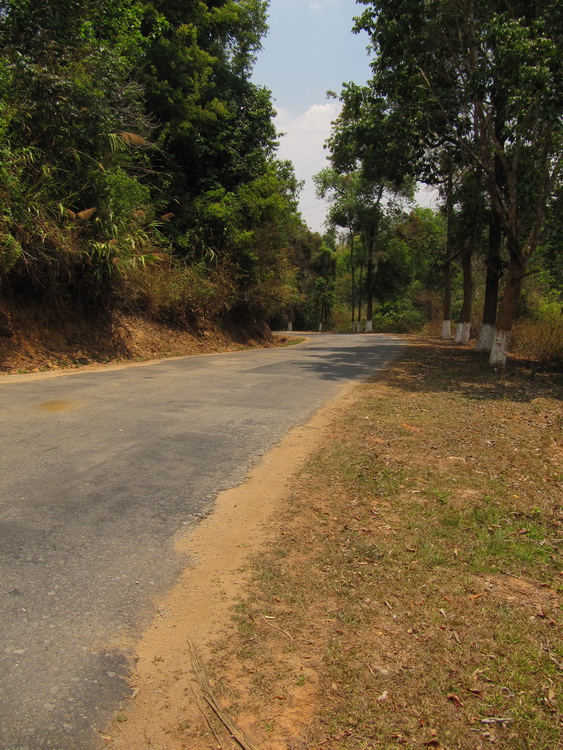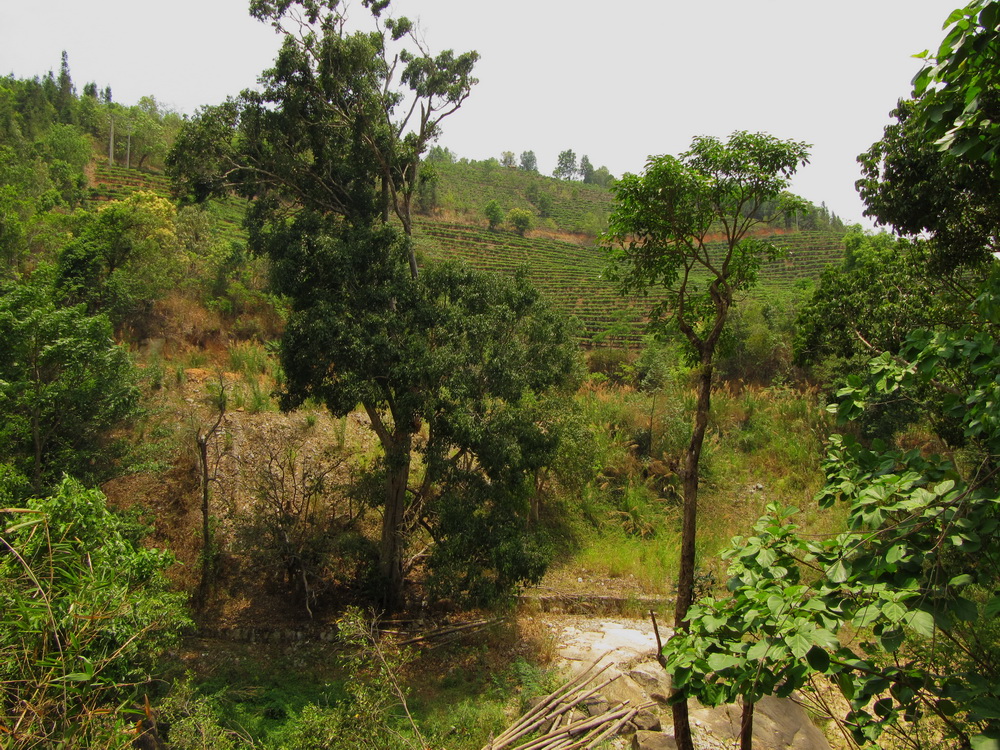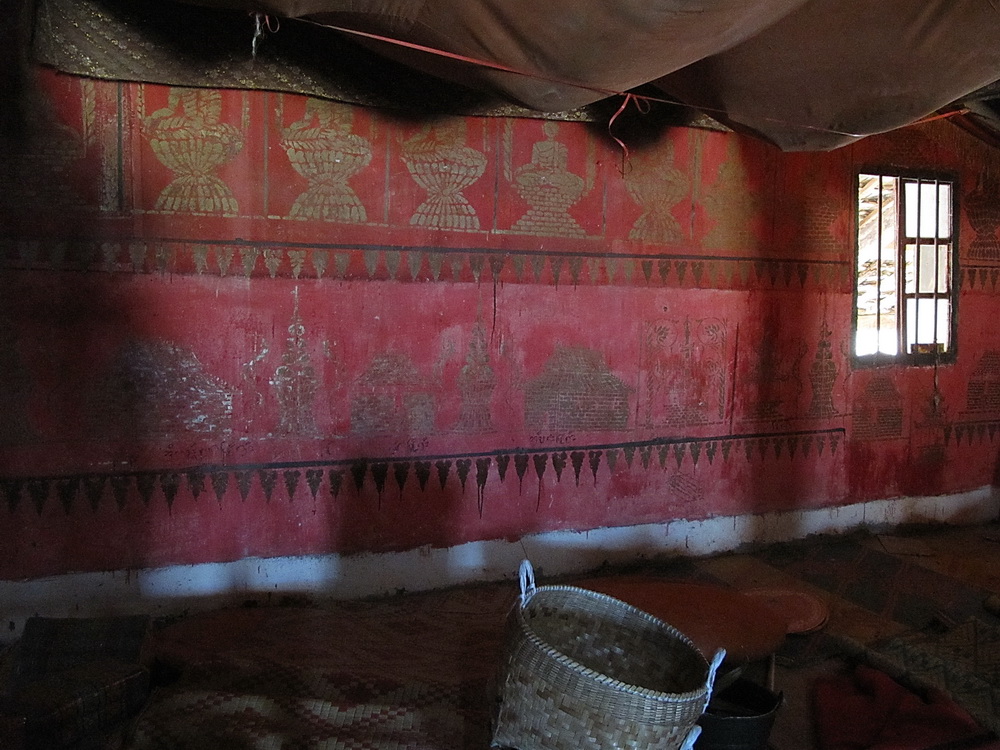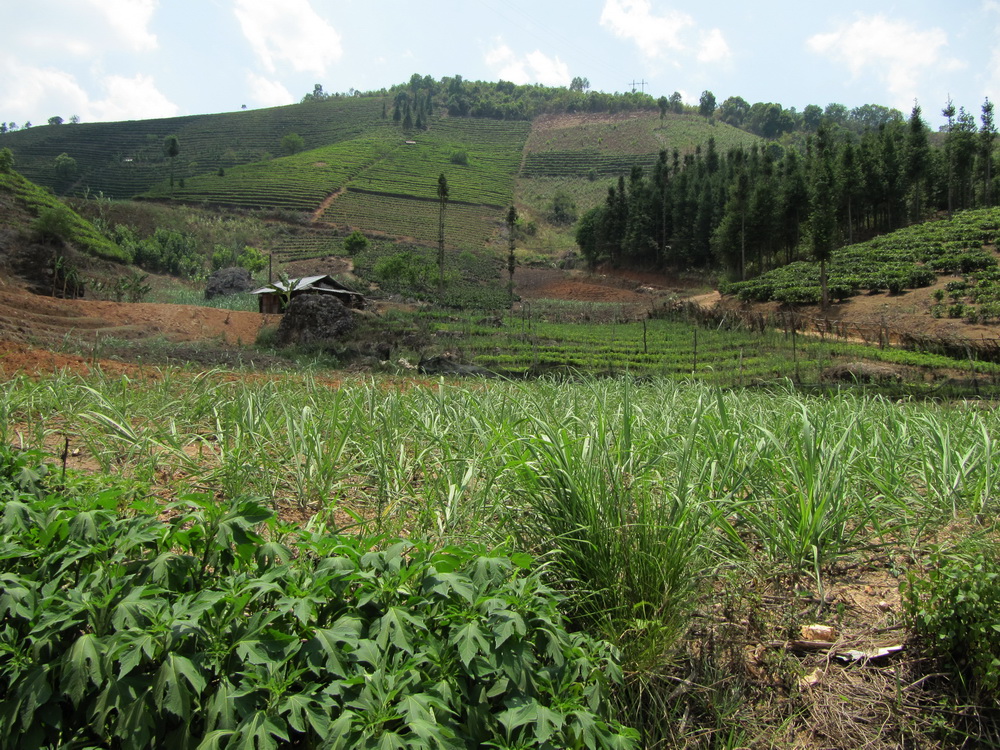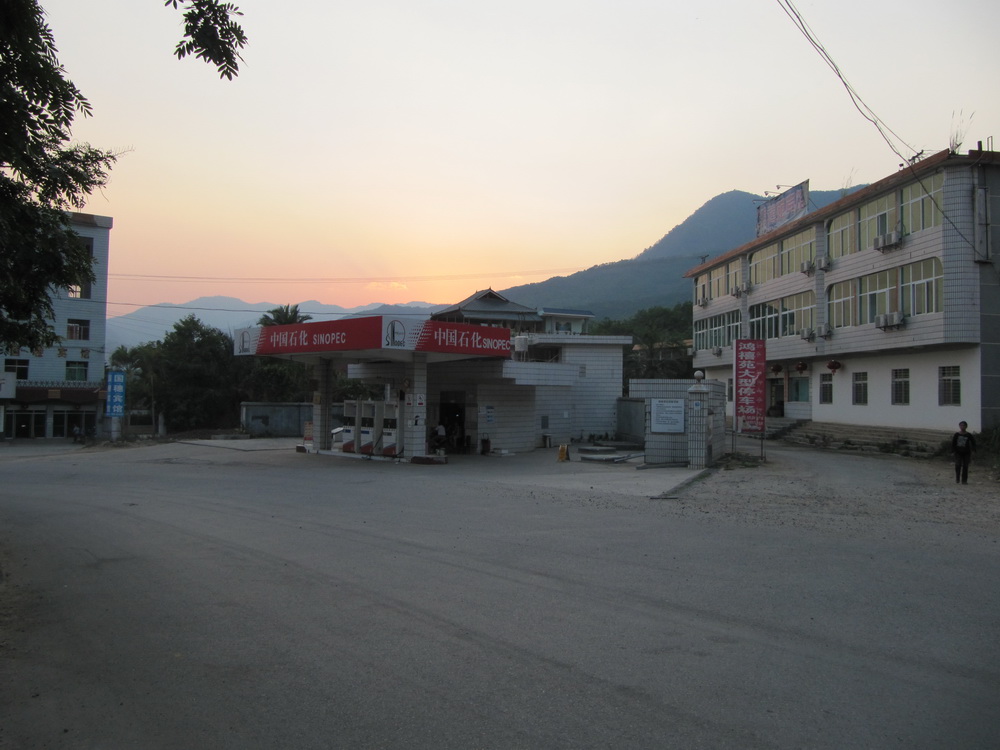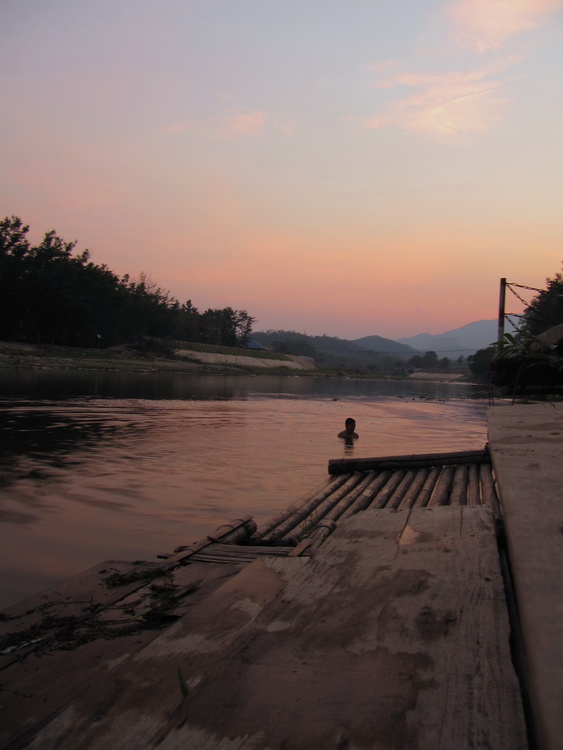I recently made a trip back to Mang Guo Xin Zhai to visit the school there. I hadn’t been for a long time and it was time to go and take a few things for the students. The 4th and 5th grade students have been transferred to Ji Liang Zhai, so there are now only a dozen students there.
The old road from Jing Hong to Menghai is pleasant for the most part – there are a few sections where the road is being re-made and has not yet been resurfaced so it can get pretty dusty. There is also some quarying up there, so there are a few trucks on the road.
Further up, past the quarry the road looks like this. It somehow reminds me of a French country road.
It is also from this road that one can head up to Meng Song and Naka (but that’s for another time)
As one gets to a higher elevation, one starts to see some bush tea – a fair bit actually – most of the older tea factories in Menghai I clustered along the old road, so that’s where a fair bit of the more established tea plantations are.
The other side of Menghai, the road climbs a little and then drops down again into Menghun. Looking down on the plain to the south of Menghun, it looks like half of it has been flooded, but once you get nearer you can see that it’s not water, but an ocean of poly-tunnels. On the fertile flood plain traditional paddy cultivation has been supplanted by watermelon and other cash crops.
Past Menghun, one passes through a few villages that for some reason – the wisdom of some local government office – have signs at the entrance to the village in English as well as Chinese. So the place name, Man Huo, which is, in any case, a transliteration from Dai – so the original meaning has already been lost – is rendered as the rather excellent ‘Man Ignition’ in English. The Dai ‘man’ for village becomes man 曼 in Chinese (which here is only a phoneme) and ‘man’ in English.
These Dai villages, like many Bulang villages, have simple temples, which lack the splendour of their rich cousins in Thailand, but in so doing present something rather appealing, somehow nearer the truth of an uncluttered Theravadan lifestyle. Less show, less pomp. With that comes a little bit of a sense of neglect, but that too is perhaps part of the charm.
Man Guo Xin Zhai is a little way past these villages. There is also a fair bit of bush tea being cultivated in this area. It is all new as it is at a lower elevation and the villages have only been settled in recent years.
Once you get to the turn off for Ji Liang Zhai the tea is gone. From here, it’s bananas all the way to the border at Da Luo. Miles of them. Not surprisingly, there’s not a single banana for sale in the market in Da Luo, which has the fading appeal of a border town that was thriving ten or so years ago, but now has the air of a place forgotten by the world.
The Chinese Government moved a few years ago to put a stop to Chinese people going over the border to Xiao Meng La to gamble. You can still go: I was invited by a number of motorcycle taxi drivers to go. “No need for a passport” they said – it is effectively a Chinese canton – but in that sense rather unappealing to me. One is certainly not going to see ‘the real Burma’ there. I would be more than willing to do that, as it is four or more years since I was last there.
So I contented myself with looking across at the mountains on the other side and went for a walk by the Nan Lan River which, further down below the town, forms the Chinese-Myanmar border.

